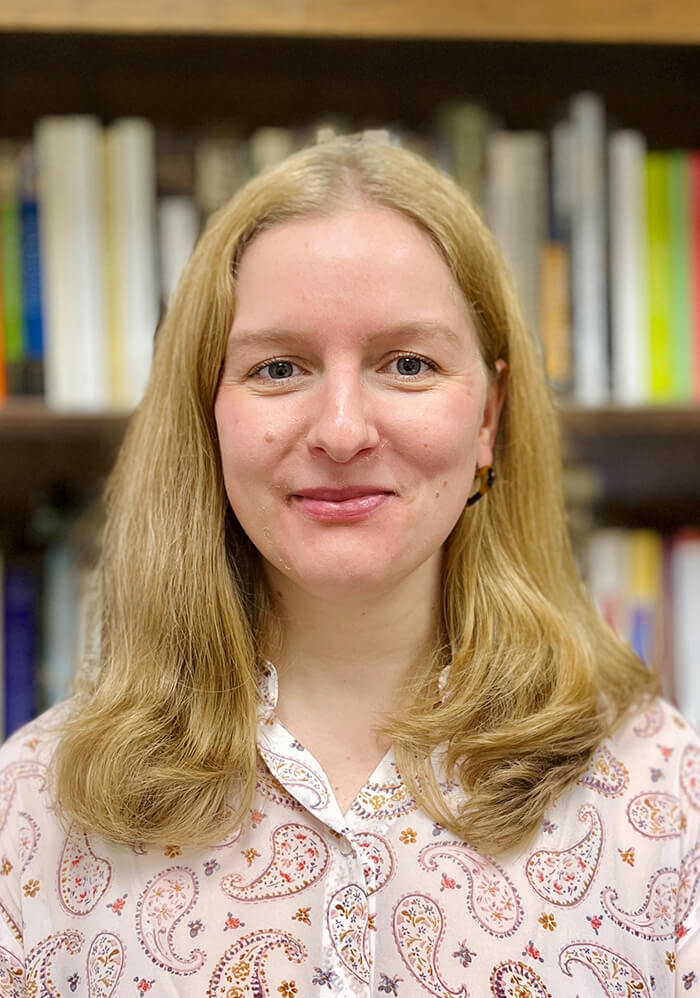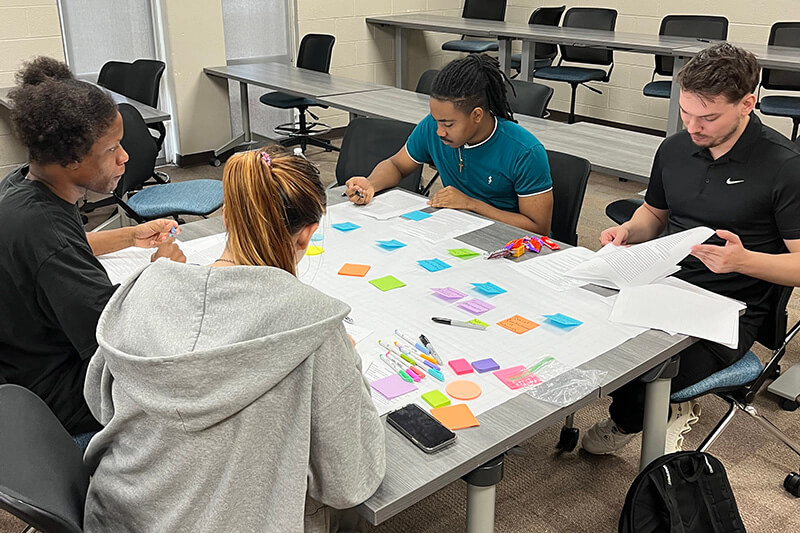New Vision, New Voices: Governor’s Teaching Fellow Helps Guide Evolution of UWG Philosophy ProgramShare this page
At the University of West Georgia, philosophy is no longer just about pondering the past – it's about shaping the future.

UWG’s philosophy program is shifting away from its historical roots to focus on real-world application, launching a new applied ethics track for its bachelor’s degree. This transformation, driven in part by the hire of Dr. Alzbeta Hajkova, assistant professor, is designed to equip students with ethical reasoning skills needed to tackle today’s most urgent dilemmas in fields such as healthcare, technology and the environment.
Although new to the university, Hajkova is already impacting UWG after recently being named a 2025-2026 Governor’s Teaching Fellow (GTF) – one of only 16 faculty throughout the University System of Georgia to be selected.
“This is a chance to continue developing skills that I’ve been hired to do at UWG, which is teaching students critically about technology and its relationship to society, ethics, culture, politics and more,” Hajkova began. “Even though this program is pedagogy-oriented, it will be influential for me as a researcher and junior faculty member.”
GTF was established in 1995 by then-Georgia Gov. Zell Miller to provide Georgia's higher education faculty with expanded opportunities for developing teaching skills. Miller envisioned that this program would address faculty members’ pressing need to use emerging technologies and instructional tools that are becoming increasingly important for learning.
According to Dr. John Garner, associate professor and philosophy program coordinator, Hajkova’s creative approaches will help the program grow the new applied ethics track, especially around technology.
“Dr. Hajkova brings a wonderful and applied element to the program with her background and specialization in ethics of technology and AI,” he said. “All fields today require digital literacy. We need to learn to speak cogently about what technology is doing to us and what we want it to do for us. Dr. Hajkova’s time as a GTF will focus on developing teaching strategies and content.”
Hajkova said technology has always played a role in education’s evolution – from yesterday’s pens, paper and physical books to today’s cellphones and laptops. This is what she hopes to tackle as a GTF: developing materials for a new course that focuses on the relationship between science, technology and society.
“Because of things like generative AI, we are in a stage where we’re negotiating what counts as legitimately technology,” Hajkova explained. “For example, students have their laptops, and those can sometimes cause a distraction. Instead of being distracted, I use online scavenger hunts where students take their phone, scan a QR code, then write answers to questions or watch a related video. It invites them to use their devices while engaging with the course material rather than check their texts or social media.”
Another area Hajkova would like to explore further is nondisposable assignments that integrate innovative teaching techniques into her classroom. Typically, assignments have one recipient – the instructor – who evaluates the work. Nondisposable assignments, she explained, include other stakeholders, such as classmates.

Hajkova said one example she uses includes collaborative concept maps.
“Philosophy courses typically work with complex academic readings,” she elaborated. “Students pull out the key concepts from these readings, briefly explain them and then organize them into a visual map that helps them understand how the concepts are connected. This example is one where the longest possible element of the assignment is the collaboration between the students.”
This emphasis on collaboration reflects a broader shift within the program, one that continues to help students progress in their journey toward graduation and conscientious careers that span disciplines. Longtime faculty member Associate Professor Dr. Walter Riker has witnessed this firsthand.
“Our students pick up a host of all-purpose skills – including facility with reading, digesting and synthesizing complex material, assessing the pros and cons of various perspectives, and communicating their thoughts verbally and in writing,” he added. “Students are not told how to think about these issues but are instead given the tools and background knowledge they’ll need to make informed decisions.”
